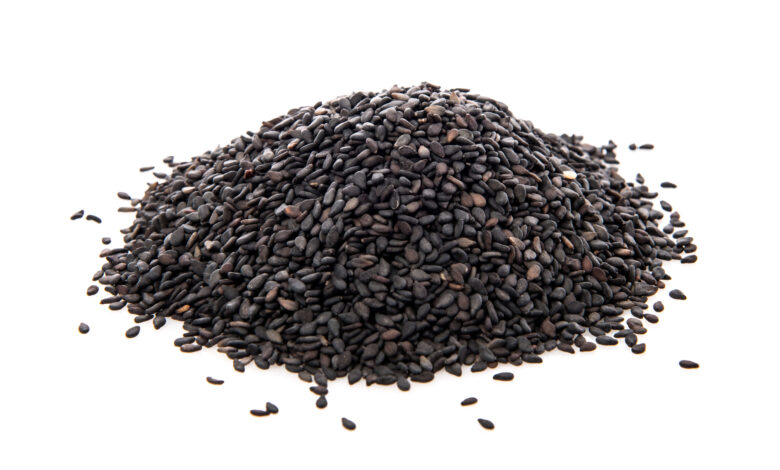The Power of Black Seeds: Benefits, Nutrition, and Safety

Black seed, also known as Nigella sativa, has been used for its medicinal properties for centuries. Its use dates back to ancient Egypt, where it was found in the tomb of King Tutankhamun. Today, black seed is widely available as a dietary supplement, and many people are curious about its potential health benefits. In this article, we will explore the benefits of taking black seed, its nutritional value, the appropriate daily intake, and potential risks associated with its use.
can you take black seed oil while pregnant
Pregnancy is a delicate time for both the mother and the developing fetus, and it is important to be cautious about what you put into your body. While black seed oil is generally considered safe for most people when taken in appropriate doses, it is recommended that pregnant women avoid taking it.
Black seed oil has been traditionally used for various health purposes, including improving digestion, reducing inflammation, and boosting the immune system. It is rich in essential fatty acids, such as omega-3 and omega-6, and is also a good source of antioxidants.
However, there is not enough scientific evidence to determine the safety of black seed oil during pregnancy. Some animal studies have suggested that black seed oil may have potential reproductive toxicity, and it may also have an effect on hormone levels. While these studies are not conclusive and more research is needed, it is recommended that pregnant women err on the side of caution and avoid taking black seed oil.
If you are pregnant and considering taking black seed oil, it is important to speak with your healthcare provider first. They can provide personalized advice based on your individual health status and any medications you may be taking. In general, it is always a good idea to consult with a healthcare provider before taking any new supplements or making significant changes to your diet during pregnancy.
Is it Safe to Take Black Seed Every Day?
black seed is considered safe when taken in moderate amounts. However, there is limited research on the long-term effects of daily use. Some studies have reported that high doses of black seed oil may cause liver and kidney damage, while others have found no adverse effects. It is important to note that the safety of black seed may depend on factors such as the quality of the product, dosage, and individual health conditions.
If you are considering taking black seed every day, it is recommended to consult with a healthcare professional to determine if it is safe and appropriate for your specific health needs. They can also advise on the optimal dosage and form of black seed to take.
What is the Benefit of Taking Black Seed in the Morning?
Taking black seed in the morning may have some benefits, including:
Boosting immunity: Black seed contains compounds that can stimulate the immune system, and taking it in the morning may help to provide a daily boost to your immune system.
Reducing inflammation: Blackseed contains thymoquinone, which has anti-inflammatory properties. Taking it in the morning may help to reduce inflammation in the body throughout the day.
Supporting digestion: Black seed may help to improve digestion by promoting the secretion of digestive enzymes. Taking it in the morning may help to support healthy digestion throughout the day.
Boosting energy: Black seed may help to boost energy levels and reduce fatigue. Taking it in the morning may help to provide an energy boost to start your day.
It is important to note that the benefits of black seed may depend on factors such as the quality of the product, dosage, and individual health conditions. If you are considering taking black seed in the morning, it is recommended to consult with a healthcare professional to determine if it is safe and appropriate for your specific health needs.
How Much Black Seeds Should I Eat Daily?
Black seeds, are a popular ingredient in traditional medicine and have been shown to have several health benefits. However, there is no universally recommended daily intake for black seeds, as the appropriate amount can vary depending on various factors, such as age, weight, overall health, and the intended use.
As a general guideline, most studies have used doses ranging from 500 mg to 2,000 mg of black seed oil per day. However, it is essential to note that black seeds and black seed oil are potent, and taking excessive amounts may cause side effects.
If you are considering taking black seeds, it is always best to consult with a healthcare professional or a licensed naturopathic doctor to determine the appropriate dosage for your individual needs and health status.
Who Should Not Take Black Seed?
While black seeds have several health benefits, they may not be suitable for everyone. Some people should avoid taking black seeds or consult their healthcare provider before using them. Here are some groups of people who should be cautious with black seed consumption:
Pregnant or breastfeeding women: The safety of black seeds during pregnancy and breastfeeding is not established. It is recommended that pregnant or breastfeeding women avoid blackseed use unless advised by a healthcare provider.
People with bleeding disorders: Black seeds have anticoagulant properties, which may increase the risk of bleeding in people with bleeding disorders. Such individuals should avoid black seeds or consult with their healthcare provider before using them.
People with low blood pressure: Black seeds have hypotensive effects, which may lower blood pressure. People with low blood pressure should be cautious when using black seeds.
People with autoimmune diseases: Black seeds may stimulate the immune system, which may worsen symptoms of autoimmune diseases such as multiple sclerosis, lupus, and rheumatoid arthritis.
People with diabetes: Black seeds may lower blood sugar levels. People with diabetes should monitor their blood sugar levels carefully and consult with their healthcare provider before using black seeds.
Children: There is not enough research on the safety of blackseed use in children. Therefore, black seed use in children should be avoided, unless advised by a healthcare provider.
If you have any concerns or medical conditions, it is best to consult with your healthcare provider before using black seeds.
What is the Nutrition of Black Seed?
Black seeds, are a good source of nutrients and phytochemicals that can provide several health benefits. Here are the nutritional components of black seeds:
Protein: Black seeds contain about 20-25% protein, which is higher than most other plant-based foods.
Healthy Fats: Black seeds are rich in healthy unsaturated fats, such as oleic acid, linoleic acid, and alpha-linolenic acid.
Fiber: Black seeds are a good source of dietary fiber, which can help regulate bowel movements and promote gut health.
Vitamins: Black seeds are a rich source of vitamins, including vitamin A, vitamin C, vitamin E, and B vitamins.
Minerals: Black seeds contain several minerals, including calcium, iron, magnesium, potassium, and zinc.
Phytochemicals: Black seeds contain several phytochemicals, including thymoquinone, thymohydroquinone, and thymol, which have antioxidant and anti-inflammatory properties.
Overall, black seeds are a nutrient-dense food that can provide several health benefits. However, it is essential to note that black seeds are also high in calories, so they should be consumed in moderation as part of a balanced diet.
Does Black Seed Have Omega-3?
Yes, black seeds contain omega-3 fatty acids, specifically alpha-linolenic acid (ALA), which is an essential omega-3 fatty acid that the body cannot produce on its own and must be obtained through the diet. ALA is converted into the long-chain omega-3 fatty acids, EPA and DHA, which have been shown to have numerous health benefits, including reducing inflammation, improving brain function, and lowering the risk of heart disease.
Although black seeds are not a rich source of EPA and DHA, they are a good source of ALA, with some studies suggesting that consuming black-seed oil may increase levels of EPA and DHA in the body.
However, it is important to note that the conversion of ALA to EPA and DHA is not very efficient in the body, and other dietary sources of EPA and DHA, such as fatty fish or fish oil supplements, may be more effective in increasing levels of these beneficial fatty acids in the body.
Is Black Seed a Superfood?
Black seed has been used for medicinal purposes for centuries in traditional medicine. It contains a variety of compounds that have been studied for their potential health benefits, including thymoquinone, which has been shown to have antioxidant, anti-inflammatory, and antimicrobial properties.
While some people may consider black_seed a superfood due to its potential health benefits, there is no scientific definition for what constitutes a superfood. Additionally, it is important to note that while blackseed has been studied for its potential health benefits, more research is needed to fully understand its effects on human health and to determine the optimal dosage and form of consumption.
black seed may have some potential health benefits, but more research is needed before it can be considered a definitive “superfood.” As with any food or supplement, it is important to talk to your healthcare provider before incorporating black_seed into your diet.
In conclusion, black_seed is a potent medicinal plant with a rich history of use. While it has potential health benefits and is generally safe for most people when taken in appropriate doses, it is important to use caution and consult with a healthcare provider before taking black_seed. A balanced and varied diet, along with regular exercise and stress reduction, remain the foundation for maintaining good health.



